第47章 LETTER IX(4)
As I remarked before, the coasting trade of the Straits of Malacca is in their hands, and to such an extent have they absorbed the trade of this colony, that I am told there is not a resident British merchant in Malacca. And it is not, as elsewhere, that they come, make money, and then return to settle in China, but they come here with their wives and families, buy or build these handsome houses, as well as large bungalows in the neighboring cocoa-groves, own most of the plantations up the country, and have obtained the finest site on the hill behind the town for their stately tombs. Every afternoon their carriages roll out into the country, conveying them to their substantial bungalows to smoke and gamble. They have fabulous riches in diamonds, pearls, sapphires, rubies, and emeralds. They love Malacca, and take a pride in beautifying it. They have fashioned their dwellings upon the model of those in Canton, but whereas cogent reasons compel the rich Chinaman at home to conceal the evidences of his wealth, he glories in displaying it under the security of British rule. The upper class of the Chinese merchants live in immense houses within walled gardens. The wives of all are secluded, and inhabit the back regions and have no share in the remarkably "good time" which the men seem to have. Along with their industrious habits and their character for fair trading, the Chinese have brought to Malacca gambling and opium-smoking. One-seventh of the whole quantity of opium exported from India to China is intercepted and consumed in the Straits Settlements, and the Malacca Government makes a large revenue from it. The Chinaman who "farms the opium"--i.e., who purchases from the Government the exclusive right to sell it--pays for his monopoly about 50 pounds per day. It must be remembered, however, that every man who smokes opium is not what we understand by an "opium-smoker," and that between the man who takes his daily pipe of opium after his supper, and the unhappy opium-slave who reduces himself to imbecility in such dens as I saw in Canton, there is just as much difference as there is in England between the "moderate drinker" and the "habitual drunkard." Slavery is prohibited in Malacca, and slaves from the neighboring State fly for freedom to the shelter of the British flag; but there is reason to suppose that the numerous women in the households of the Chinese merchants, though called servants, are persons who have been purchased in China, and are actually held in bondage. Apart from these exceptions, the Chinese population is a valuable one, and is, in its upper classes, singularly public-spirited, law-abiding, and strongly attached to British rule.